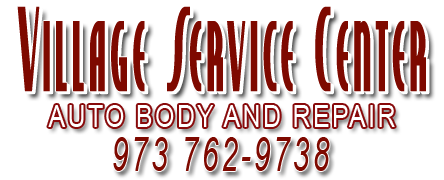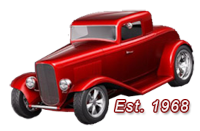Protecting Your Rights Against Car Insurance Steering
Steering Is Illegal!
We will pay $500 to any person for information leading to the arrest and conviction of any insurer steering a consumer to a particular repair shop!
You have the right to have your vehicle repaired at the shop of your choice. Don’t give up your right to a proper repair.
You lose when you give up your right to choose!
Use Any Shop.
Yes. In order to expedite your claim, select the repair shop, leave your automobile there, and notify your insurance agent or company. This applies regardless of whether your vehicle is leased, financed, or you own it outright.
No. You do not have to obtain more than one estimate. You only need one estimate from the shop of your choice.
Imitation Parts
Insurance companies cannot force us to use imitation parts.
Make sure only original equipment manufacturers’ parts are used in the repair of your vehicle. Imitation parts are not always as good as the original, and we believe our customers should be assured of a top quality repair. After all, you pay premiums month after month just to have the assurance that your car will always be protected. Using substandard parts can put the condition of the car in jeopardy.
OEM Parts
Get Real When It Comes to Parts!
The insurance appraiser’s opinion of what constitutes a proper repair may include “parts from sources other than your vehicle’s manufacturer or non-original parts.” It may also include the specification of parts from a junkyard. Insurance companies can put a spin on anything. They may try to convince you that these parts are as good or just like the parts on your car.
That using these parts makes economic and environmental sense. It makes sense economically for them, not you! After some 40 years in collision repair I can say without hesitation that aftermarket collision parts are 99.9% of the time not as good as the original!
My personal opinion of aftermarket parts is that they are close copies. So is a fake Rolex®. If your Rolex® was lost, would a copy be just as good?
We don’t take the responsibility of returning your vehicle to pre-accident condition lightly. Bottom line: The insurer is responsible to restore the damaged vehicle to a specific condition. Unless your vehicle had non-original parts on it before a loss or the damaged part was rusted and rotted out, non-original parts do not restore any vehicle to pre-loss condition.
Given the example of a rusted or previously replaced non-OEM part would be the only circumstance an insurance company should specify these parts.
Assuming a vehicle is relatively new, had original parts in place, a factory warranty remaining in effect prior to the loss, the mere idea of installing a non-original part would be in conflict with the warranty provisions. Not only will the inferior, lighter, un-crash tested, un-sponsored counterfeit, non-original parts not fit the vehicle properly, they would violate the policy provisions of returning the vehicle to pre-accident condition. If “close” is good enough for you, then it is your prerogative to accept aftermarket parts.
The Same Holds True for Parts Specified From a Junkyard
No one can be certain how much damage was sustained by a part that has been retrieved from a salvage vehicle that was involved in an accident that was severe enough to consider the vehicle a total loss. No vehicle manufacturer will warranty a part installed on a vehicle that has been retrieved from a junkyard. Ford, Chrysler, GM, Honda, Toyota, Nissan, Subaru, Mercedes, Porsche, Audi, Volkswagen, Volvo, and almost every other vehicle maker have issued statements that state that non-original or salvage parts from a junkyard will void the warranty to that part and any connecting or attaching component or system. Given these facts, the parts are not equal to new OEM parts, period!
We have seen insurers so intent on controlling claims cost that they offer to guarantee the specified non-original or junkyard part themselves. It sort of becomes a codicil to your factory warranty in theory. The problem is, does a consumer’s right to recover end with that issue? Have you really recovered if your vehicle is rebuilt/restored with non-original or salvage parts from a junkyard and a makeshift warranty? In our opinion, you have not recovered at all. (See “Diminished Value”)
Remember That Our Goal
is to return your vehicle to pre-loss conditions. We are not asked to reengineer the vehicle. As you can see from our expanded explanation, insurer and shops differ in the proposed repair process. Our staff is trained and is knowledgeable in handling the process and associated pitfalls so that our mutual goals are addressed.
Regardless of the insurer-specified repair, you will be informed of the details by us, involving repair, as the process continues. Once a method of repair and the specified process is outlined, we order the parts as agreed or directed by you. Since a major part of the damage diagnostics have been done, necessary parts identified are ready to order. Generally, it takes 5–7 working days to obtain parts for standard vehicles.
While waiting for parts to arrive, work will continue on preliminary repair or structural work. It may be started in anticipation of fit-testing of the new parts. All unibody or frame repairs are completed in our in-house frame and structural alignment department.
FAQ's
Common Pitfalls To Watch Out For
Based on our experience, we have identified some common pitfalls many consumers face when having their vehicle repaired. More pitfalls will be added on a regular basis.
Most people have little or no idea what their insurance policy really says. They think they have “full coverage” and “their insurance company will take care of everything.” They come to us to have their vehicle repaired and are shocked to find out they don’t have rental car coverage. Then, after checking further, they discover the policy gives their insurance company permission to use non-factory parts. You’ll want to avoid this pitfall.
We encourage you to get that policy out and read it until you know what you pay for every time you make your payment. Call your agent and have him or her review it with you. Feel free to contact us with your questions. There’s a real good chance we’ve seen your insurance company in action. There are many solid insurance companies and agents out there with excellent products. Make sure you really have the “full coverage” you think you have.
Most people are not prepared to make decisions they’re forced to make when their vehicle is damaged. We have people call us and say: “I just wrecked my car. What do I have to do to get it fixed?” If you have avoided pitfall number one, some of these decisions will be easy to make. Other decisions can be thought through in advance. Sit down with your spouse, a close friend, your agent, etc., and ask: “If I was involved in a collision, what would be some of the decisions I might need to make, and how would I make them?”
Please feel free to contact us by phone or e-mail us with any questions you have so you will be better prepared. We’ll be glad to answer them and help you avoid this pitfall.
You have just been involved In an accident. You have avoided pitfalls 1 and 2. The next pitfall to avoid is thinking “since the insurance company is ‘paying the bill’ they should make the decisions.” People forget it’s their money the insurance company is using to pay for the repairs. They faithfully make their premium payments, counting on the insurance company to be there for them. And then, they want to tell you how you spend it. It’s your money, it’s your car. You make the decisions.
Again, know what your policy really says. Make sure you haven’t signed anything that limits the decisions you need to make in order to protect the investment you’ve made in your vehicle. Contact us if you would like to know which Insurance companies let you make decisions and which ones think they should decide for you.
Our Goal
As our customer, we welcome you. You will receive the finest quality repairs available. These repairs are made possible only by our continued dedication to the collision industry.
We are:
As a Member Of The Business Community
We adhere to a code of ethics, our pledge to you of honesty, integrity, safety, and craftsmanship.
You may have some questions concerning the estimating/repair process…this checklist was designed with those questions in mind.
If you have any questions, please ask us. Our trained professionals are ready and willing to help you in any way they can.
For us, satisfying our customers is the most important goal we have.
Important Tips To Keep in Mind
Your car is the second largest investment you’re likely to make. Preserve its value and your safety by having it repaired professionally.
Never drive a car that could be unsafe because of damages.
Some insurance companies may want you to visit their drive-in claims center before having your car repaired. You can do this or you may leave your car at our shop and ask that the insurance company inspect the car here.
You are not required by law to obtain more than one estimate or appraisal.
You Have The Right To Go To The Repair Shop Of Your Choice
No insurance company can require you to go to a particular shop, so don’t let them “steer” you to their shop if you have a shop that you prefer. Remember, a collision shop that’s on an “insurer’s program or list” got there because they cut a deal for cheapest parts and obeys insurer cost-cutting directives. These “deals” may not be in your best interests.
Differences in repair estimates are common. A lower estimate may not include all necessary work. If you’re not sure why one estimate is different from another you’ve received, please ask us.
Choose a shop that has unibody repair equipment and experienced technicians that are trained to repair your vehicle properly and safely.
Ask if the shop will be using genuine manufacturer (OEM) replacement parts.
Ask if the shop offers a repair warranty.
Let us help you negotiate your claim with the insurance company. We will inform you of your rights and help you make educated decisions related to your claim.

